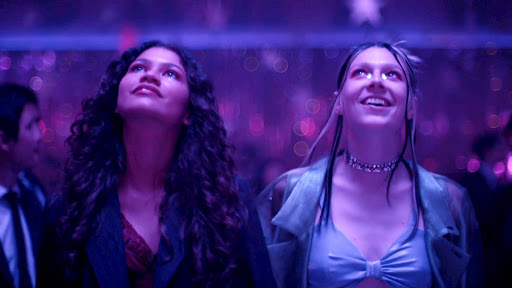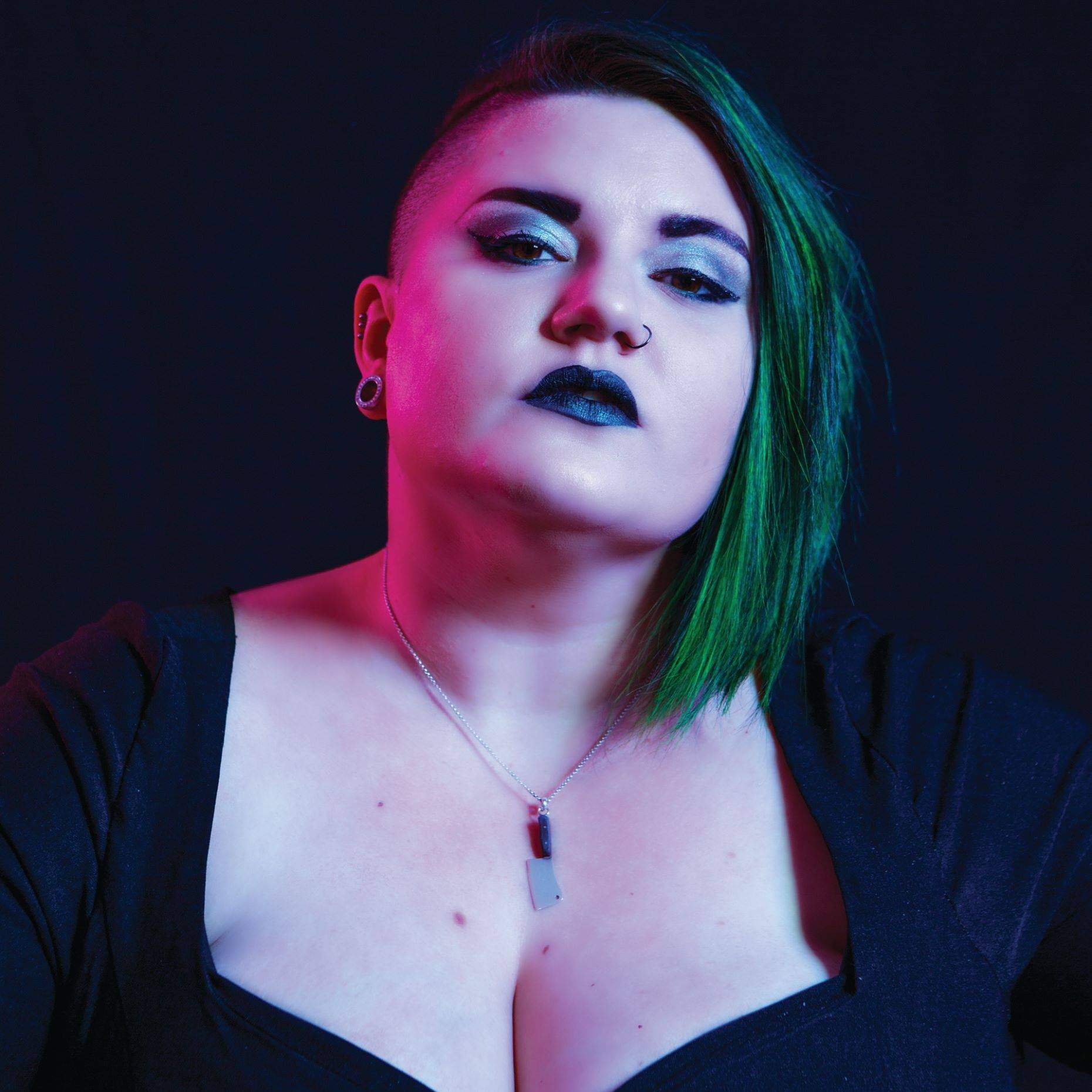How 'Euphoria' tells coming-of-age stories in a new light
For imperfect teens and former “bad influence” friends, Euphoria speaks to the broken heart.

Coming-of-age stories, particularly for women, tend to follow a very John Hughes-esque formula, in which the focus is on the “everygirl” looking for acceptance or the perpetual overachiever looking to hang loose. Those of us labeled as “bad influences” or “problems” are relegated to cautionary tales from tertiary characters, and certainly presented as undeserving of empathy or understanding. There are few people who look back on their teenage years with fondness, and it’s safe to assume there are even fewer who would willingly relive the anguish of their youth. Despite this, HBO’s Euphoria resonated not just with the target Gen Z audience, but also legions of former troubled teens willing to reopen decade old wounds from reliving their high school years.
The protagonist and unreliable narrator of the series is Rue (Emmy Award winner Zendaya), a girl fresh out of rehab, living with drug addiction, and navigating a cornucopia of mental illnesses. Rue knows drugs are bad and knows the toll it takes on those around her when she’s using, but rather than shame her or present her as a bad person for continuing to use drugs, her addiction is presented with empathy. We watch on and hope that Rue will find a way to battle her personal demons without the assistance of substances, but we understand why she feels pushed to this point.
Around my junior year of high school, I also began abusing substances. The stress of being a teenage girl, the traumatic experiences I’d already survived, and the constant social pressures pushing down on me like an unbearable weight made the world feel like a pretty unlivable place. When you’re a teenager, there aren't a lot of options to change one’s circumstances. I turned to hallucinogens. The way I saw it, if the world didn’t look or feel like it normally did, I could get through it. Toward the end of the pilot, Rue explains to her drug dealer that her reason for using is, “Because suddenly the world went quiet, and I felt safe in my own head.” It was as if she was pulling lines straight out of my old Livejournal entries.
It is important to note that despite Euphoria being one of the only shows that affords a Black girl the space to make mistakes instead of being presented as a model-minority, this decision to center a story on the pain of a Black protagonist falls into an all too familiar trope for coming of age stories. However, unlike most other examples of this trope, Rue is not the only character in pain.
All of the teens presented on Euphoria are battling wars that many may findl unbelievable, but for some of us, feel like old familiar friends we know better than to talk about in polite company. Before the series premiere, show creator Sam Levinson spoke to The Hollywood Reporter about the seemingly provocative situations saying, "It may seem boundary-pushing, and the idea of putting them on TV may be, but somebody lived them." Much of Rue’s struggles with addiction are inspired by Levinson’s own history of substance abuse.
Joining the rogues gallery of Euphoria’s adolescent turbulence is Maddy (Alexa Demie), the bedazzled queen bee in a tumultuous relationship with a sexy jerk boyfriend. Her story seems familiar, as we all knew that couple in high school, but peering behind the curtain reveals confusion, frustration, and the reality that leaving abusive relationships are difficult, even if you’re still in high school. Joining her is Cassie (Sydney Sweeney) a girl dealing with the double edged sword of sex positivity and slut shaming, and how that cicatrice determines how boys treat her. Kat Hernandez (Barbie Ferreira), a fat girl navigating her body’s place in the cruel politics of high school, obliterates the “fat friend” tropes that came before her, and is allowed the opportunity to own her desirability.
More than once I would watch Kat make a decision and think to myself, “been there, done that.”
The latest updates, reviews and unmissable series to watch and more!
Rue is balanced by the one person who truly meets her where she’s at--Jules, played brilliantly by Hunter Schafer. Jules’ trans identity is not the whole of her character, but is still respected and presented as an important part of who she is and what she’s been through. She’s messy and she makes bad decisions, but ultimately, she does these things because she’s a teenager. Most importantly, perhaps, is that Jules is the object of Rue’s affection, and is loved sincerely for who she is regardless of her questionable behavior. It’s hard enough for trans people to see themselves even existing in entertainment fiction, but it’s next to impossible to see representation of trans people experiencing love. At 30-years-old, I am now married to a trans woman, and outside of pornography, Euphoria was the first time I saw cis/trans love between two women on my TV screen. It was nice not to feel so alien for once.
Levinson’s hit series isn’t his first foray into the world of misunderstood teen girls. The criminally underseen Assassination Nation tackled topics like (but not limited to) underage sexting, revenge porn, teenage infidelity, transphobia, misogyny, and toxic masculinity all without dehumanizing or exploiting the victimized. It’s a trend he fortunately continued with Euphoria, and one in which I hope other creators find inspiration.
Everything about Euphoria is raw and unflinching--truly capturing the pain that can accompany teenage life while sprinkling in those moments of relief, no matter how fleeting. I can’t help but wonder how my seventeen-year-old self would have turned out if a show like Euphoria was available to help me feel normal for being more Barbie Ferreira and less Molly Ringwald. I yearn to go back and time if only to tell that girl there’s nothing wrong with going through it, and for some people, their coming-of-age experiences aren’t going to wind up on a shirt at Target.
Perhaps Rue says it best, “I know it all may seem sad, but guess what? I didn't build this system, nor did I fuck it up.”
None of us did.
We just sort of had to get through it as best as we could.
BJ Colangelo is an award winning filmmaker and film analyst specializing in dismissed cinema and television. She writes about horror, wrestling, musicals, adult animation, sex and gender, kicking pancreatic cancer’s ass, and being a fat queer in places like Fangoria, Vulture, The Daily Dot, Autostraddle, Playboy.com, and a handful of books college students get assigned to read. She’s also the co-host of the teen girl movie podcast, This Ends at Prom, with her wife, Harmony.



